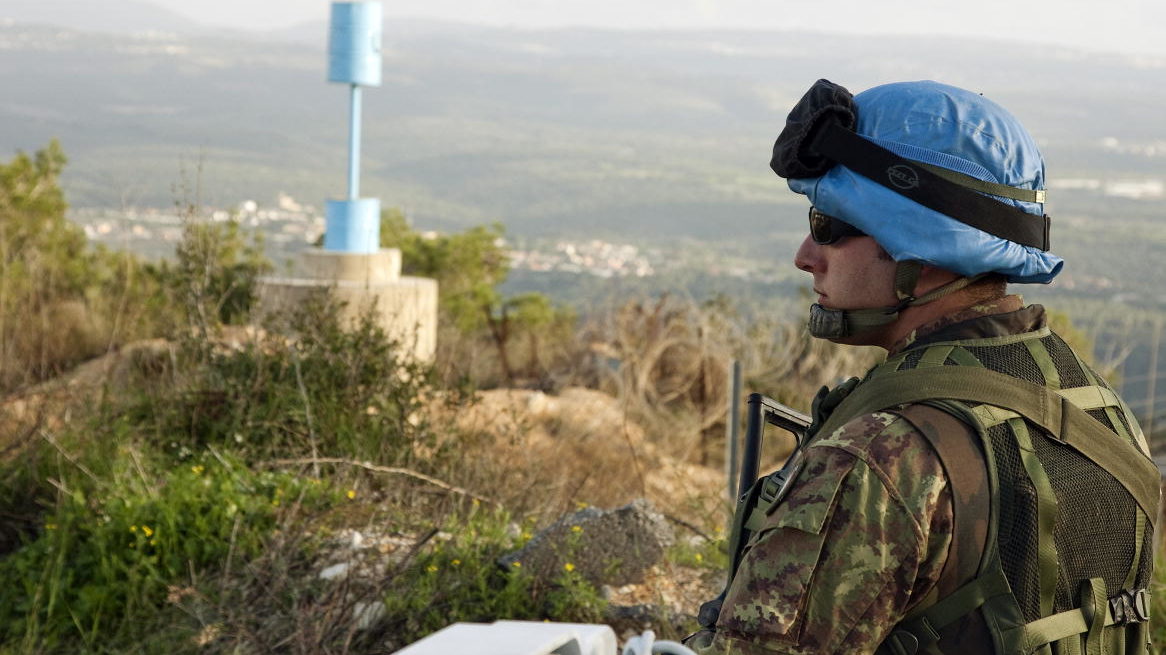UNIFIL and Hizbullah: What’s Next?
An-Nahar, Lebanon, December 17
Last week, an Irish UNIFIL peacekeeper was killed by gunfire in Al-Aqibiya, located in South Lebanon. A second peacekeeper was in critical condition after a hostile crowd surrounded their armored vehicle and opened fire. Hizbullah can deny its connection to the Al-Aqibiya attack, but the reality is very different. For a very long time, Hizbullah has been undermining the peacekeeping force in Lebanon and accusing its members of conspiracy and espionage against Lebanon. Whatever Hizbullah’s justifications for the incident are, there’s no doubt that the incident sends several messages to the international community. The party claims that the shooting occurred between local, unorganized villagers and UNIFIL soldiers, without any political or security motivation. The party also accused UNIFIL forces of entering an area outside their jurisdiction. This isn’t the first time that a clash occurs between residents of villages considered strongholds of Hizbullah and UNIFIL forces. However, the incident or attack on the Irish battalion’s vehicles took place in an area outside of UNIFIL’s region of operation south of the Litani River. It comes after the recent Security Council resolution at the end of last August calling to extend the mandate of the international peacekeeping force for another year and its indication that these forces do not need prior authorization to carry out their tasks. In other words, according to the UN, UNIFIL forces should have freedom of movement within Lebanon, which is something that Hizbullah objects to. This is the most prominent and serious incident against UNIFIL since the renewal of its mandate by the Security Council. It was preceded by separate incidents in the southern Litani area, in which UNIFIL vehicles were raided, looted, and destroyed by local villagers Although Hizbullah denied connection to any of these matters, the killing of an Irish peacekeeper will have repercussions on the work of these forces. The Al-Aqibiya incident raises many question marks about the messages that Hizbullah wants to send to international parties – namely, that it considers its strongholds to be private territories that it is forbidden to enter or bypass. UNIFIL claimed two vehicles lost their way on the highway between the cities of Tyre and Sidon. The incident also comes after the signing of the maritime demarcation agreement, and Hizbullah’s approval of it and considering it a historic achievement. Perhaps the party wants to send indirect messages to confirm the separation between the maritime and land demarcation, and to restrict the work of the UNIFIL forces by limiting their missions to the general borderline without entering the villages and towns along it. In doing so, Hizbullah confirms through its practices that it is the de facto sovereign and decision-making authority in southern Lebanon. The incident will have international repercussions on the Lebanese situation, especially in the South, and it will reopen the debate about the role of international forces vis-à-vis the implementation of Resolution 1701. Hizbullah seeks to prevent any change to the status quo along the border, especially as it pertains to UNIFIL’s work and mandate. And while we are witnessing new tensions in the region, especially after the failure of the nuclear negotiations, Hizbullah is severing its tone and stance in Southern Lebanon. Surely, Lebanon will not be immune from the growing tensions in the region, especially the Iranian file. Therefore, the Al-Aqibiya incident is far from an accident. It is a clear effort on behalf of Hizbullah to reassert its dominance over the region. Sadly, this will be far from the last confrontation we’ll witness in the South. Indeed, the Lebanese government might find itself caught amid this chaos, with an inability to reach a settlement between the parties or to fulfill its constitutional requirements. Lebanon will be unable to withstand growing political and military tensions, international pressure, and sanctions. The Al-Aqibiya incident is a foreshadowing of what is yet to come. –Ibrahim Haider (translated by Asaf Zilberfarb)


